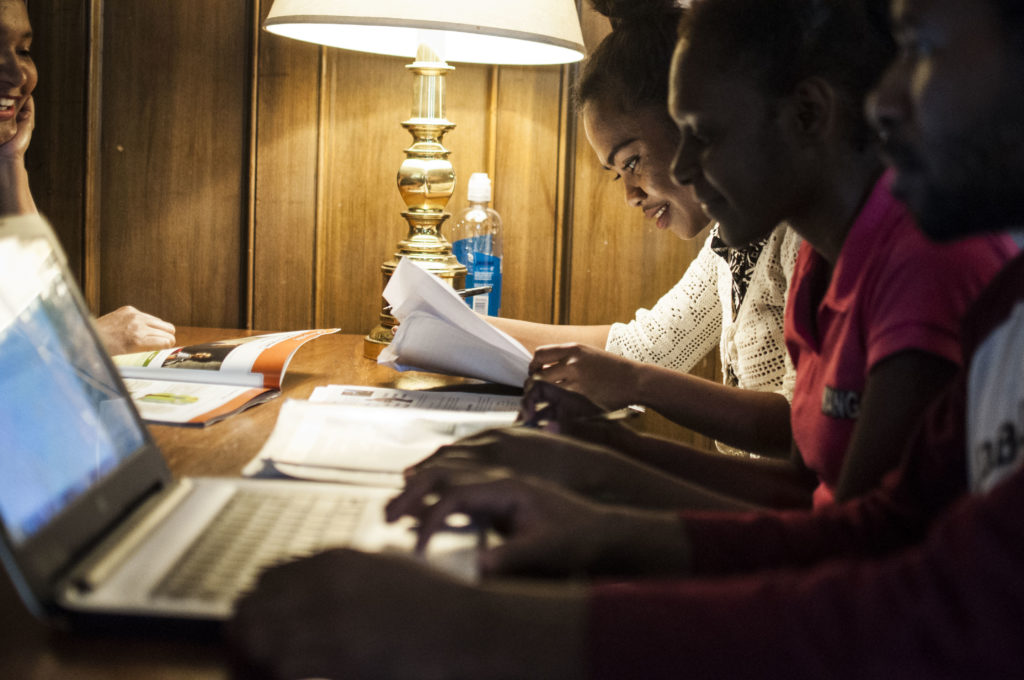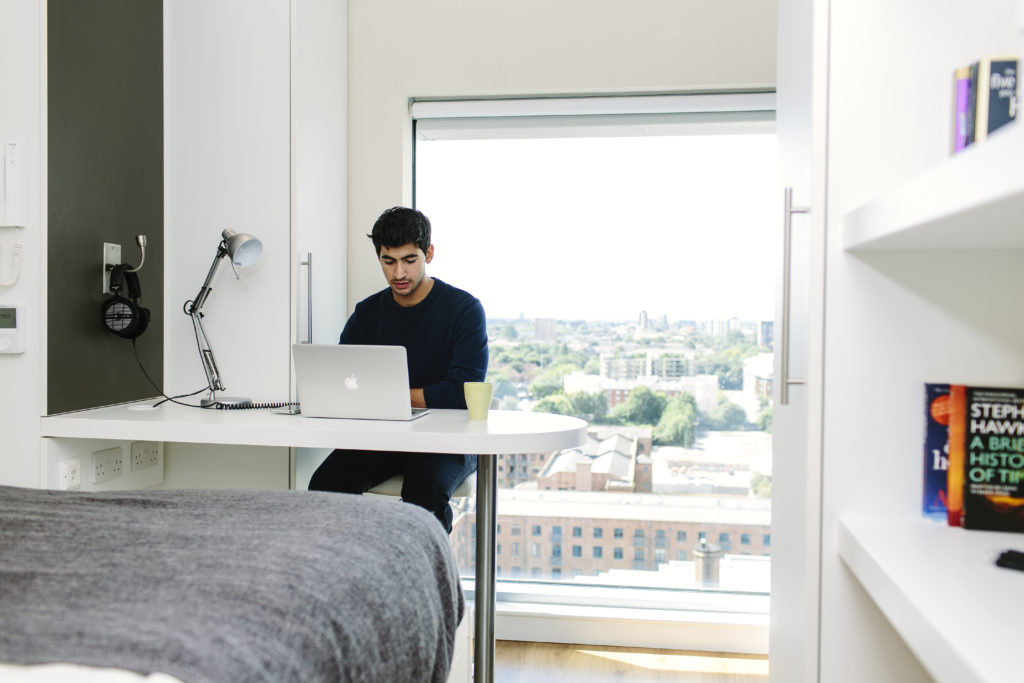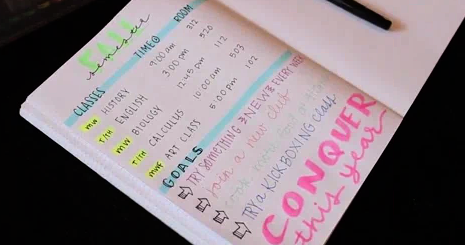8 ways to be more productive at university
Living independently can be a challenge. You have to juggle your daily chores and tasks with your university deadlines, and not forget to look after yourself in the process.
With all this to do, it’s easy to lose productivity – but it is possible to regain your focus and meet those deadlines. Here are eight tips to become more productive at university.
1. Download a productivity app

The app store is great place to find just about anything you need digitally, including apps to help you be more productive. There are a number of productivity apps that could help you get more university work done in a shorter period of time, from daily trackers to routine apps.
The best productivity apps for students, available on iPhone and Android, include:
ToDoist – intelligent software that categorizes tasks that you write down to help you plan your time and organize your daily goals, automatically scheduling reminders.
Trello – a project management app that helps you to manage your workload in a simple visual way, allowing you to break down projects into smaller parts.
Toggl – a simple app that tracks the time you take to complete a task. Once you’ve finished, you’ll have access to a report that shows how your time was spent. You can then analyze the findings to figure out how you can be more productive next time.
Evernote – a note-taking app that allows you to capture lecture notes and ideas as written notes, voice recordings and pictures, as well as manage your workload.
myHomework – a student planner app that syncs your devices so that you can access your assignments anywhere, helping you to stay organized and on-track.
2. Look after yourself

This is something that your parents probably check up on you about regularly, but it’s important. Looking after yourself is one of the best ways to increase your productivity.
Make sure you get enough sleep each night – a sleep deprived student is not a productive student! Eating healthily and exercising regularly is another great way to boost your positivity and make you feel good from the inside out, motivating you to do more work.
There are a variety of superfoods, or ‘brain foods’, that have shown to help boost your alertness, brain activity and attention span. Oily fish, blueberries, strawberries, blackberries, eggs, nuts, seeds, kale, broccoli, soy and whole grains are all great brain-boosting foods.
3. Create a study space

Find your perfect study space – or create one if it doesn’t exist already. Sitting in a study zone, a café or somewhere else on campus with your friends can be a huge distraction, especially if there’s a lot going on around you.
Instead, try to find a place that is quiet and as free from distractions as possible, such as the corner of the library.
If the library is a distraction zone for you, you could create a study zone in your bedroom. Set up a working area and remove all distractions, such as your phone and tablet.
If you notice that you are still procrastinating, leave your desk for a short break. You want to make sure your work space and play space are clearly defined and not the same area.
4. Go on a digital detox

Taking a digital detox will significantly improve your productivity. While you may need to access your laptop or computer to complete assignments, taking a detox from your phone and social media is a good strategy for becoming more productive.
Give yourself a daily time allowance for using your phone. Restricting this time will free up time for more important things, like studying and writing assignments. Leave your phone far away from your study zone space so you aren’t tempted to tap back into digital life.
5. Improve your focus
If you find yourself getting stressed and anxious about upcoming university assignments, there are a few techniques that you can use to help improve your focus.
Practicing mindfulness and is a great way to teach your brain how to be more focused. This means that you give yourself space to take note of your body, breathing and mind.
How to practice mindfulness for beginners:
- Sit in a place that feels calm.
- Notice the way your body is positioned and make efforts to feel yourself breathing.
- Focus solely on your breath and the sounds around you for 5–10 minutes.
- If you find your mind wandering, make a point of setting it back onto your breathing and the present moment.
Mindfulness is just one technique of meditation – a practice that helps you to achieve a calm and stable state, refocusing your awareness and attention.
Regular meditation has proven to reduce stress, control anxiety and increase attention span – something that is particularly important for university students. The best part? You can meditate anywhere!
Another technique that could help you regain focus on your studies is box breathing. This incredibly simple technique is most effective when you feel yourself in a high state of stress as it can have immediate effects after a minute or two.
How to practice box breathing:
- Exhale to a count of four and hold your lungs empty to another count of four.
- Deeply inhale to a count of four and hold your lungs full to another count of four.
- Repeat this pattern until you feel your stress subside.
6. Set achievable goals

Goal setting is a great way to motivate yourself, but the key to setting goals is to make them achievable – otherwise you’ll struggle to reach them and give up.
Some people use ‘trigger goals’ to help their productivity. A trigger goal is an action that simplifies the process of achieving your goal.
For example, if you’re trying to get into the habit of going to the gym before class, you would lay out your gym clothes the night before.
This simple act removes ‘in the moment’ decision making and will power, and instead tells your brain that the decision has been made – you’re already anticipating the bigger task.
Other people use a ‘reward’ system to complete tasks. For example, you could tell yourself that you can only go to your society meeting if you complete 500 words of your essay beforehand.
Another example is treating yourself to a pizza once you’ve finished the task.
7. Work during the day
While peak productivity times vary from person-to-person, overall, brain activities such as memory and the ability to learn are heightened during the day.
Working late at night goes against your body’s natural instincts – especially when you’ve had a tiring day of lectures.
Successful people whose peak productivity hours were during the day include:
- Ludwig Van Beethoven: 7am–2:30pm
- Sigmund Freud: 7am – 9pm
- Charles Darwin: 8am–5:30pm
- Charles Dickens: 9am–2pm
8. Organize your time into time slots
Interestingly, while most of these famous success stories appear to have long working hours, they actually took a lot of breaks throughout the day. In fact, Charles Darwin worked no more than three hours at a time:
Charles Darwin:
- 8am–9:30am: worked for 1.5 hours and then took a walk
- 12pm: returned to his study and worked for 3 hours
- 3pm: took another walk
- 4:30pm–5:30pm: worked for 1 hour
Research conducted by the United States Army Research Institute in 1995 found that ultradian rhythms have 90-minute cycles, meaning that you should take a break every 90 minutes to achieve ultimate concentration levels.
Segmenting your tasks into time slots is a great way to boost your productivity and an easier way to set smaller, achievable goals.
Find your own path to productivity
Things in this list will work for some people, but it won’t work for others. The key take-home here is that trial and error is the key to finding the best way to increase your productivity.
Try a productivity app. If you discover that it’s not for you, that’s not a problem. Try something else. In the end, you will find the ideal combination to keep you productive.
You may also like to read Studying smart: what kind of learner are you?
To find out more about studying in the UK or US, head over to our website.
Connect with other students and give us a follow on YouTube, Facebook, Instagram and Twitter!



